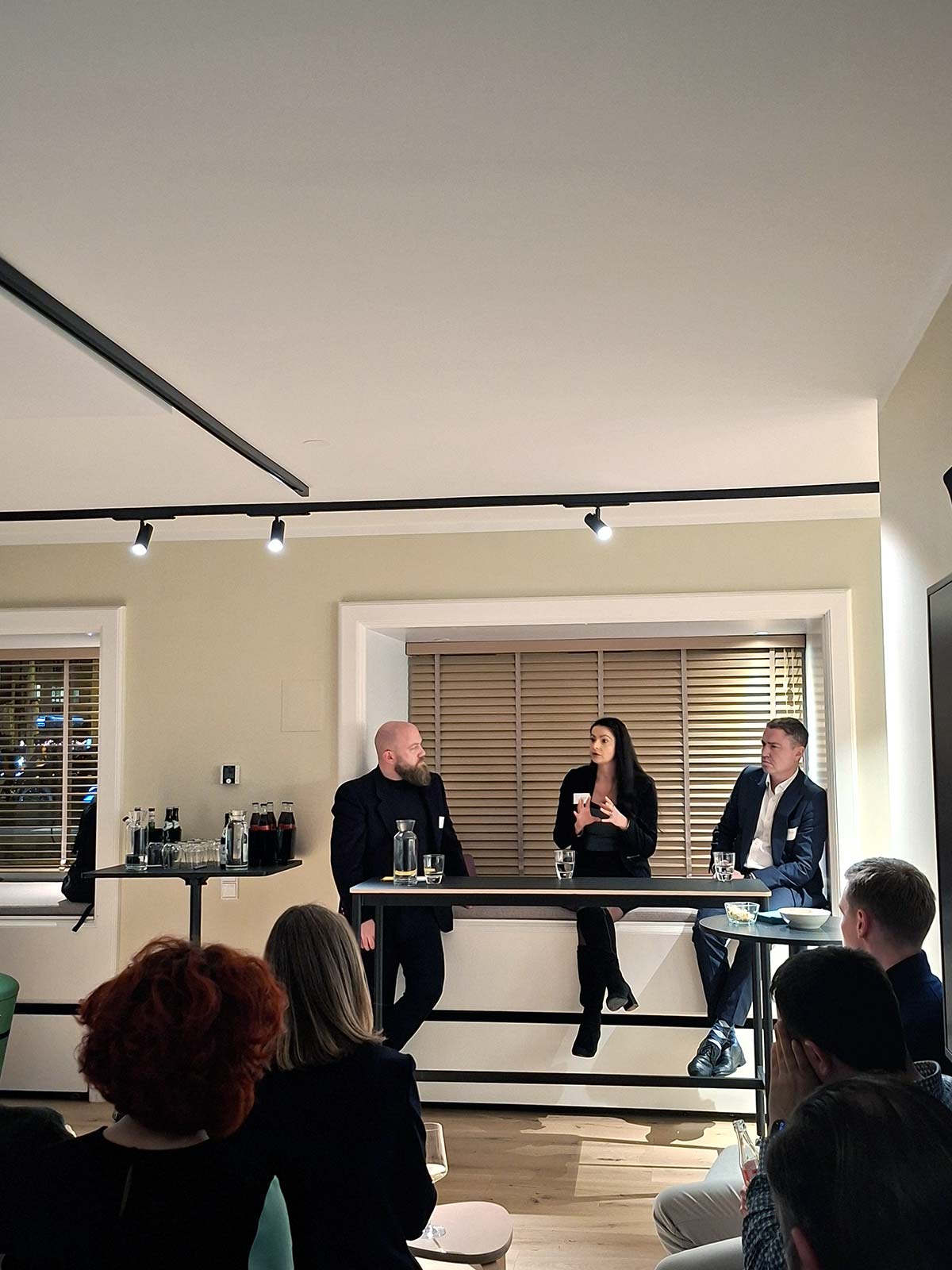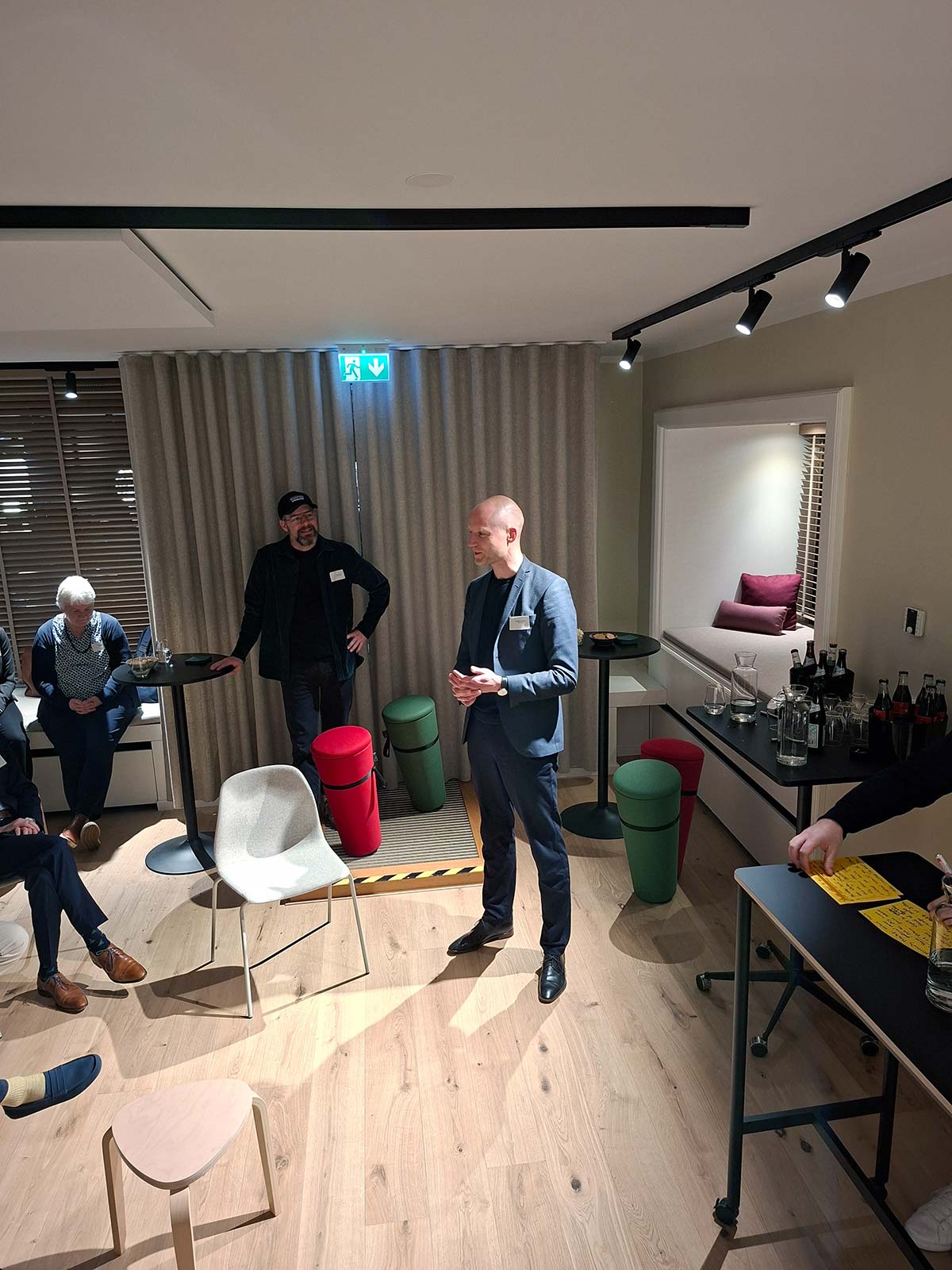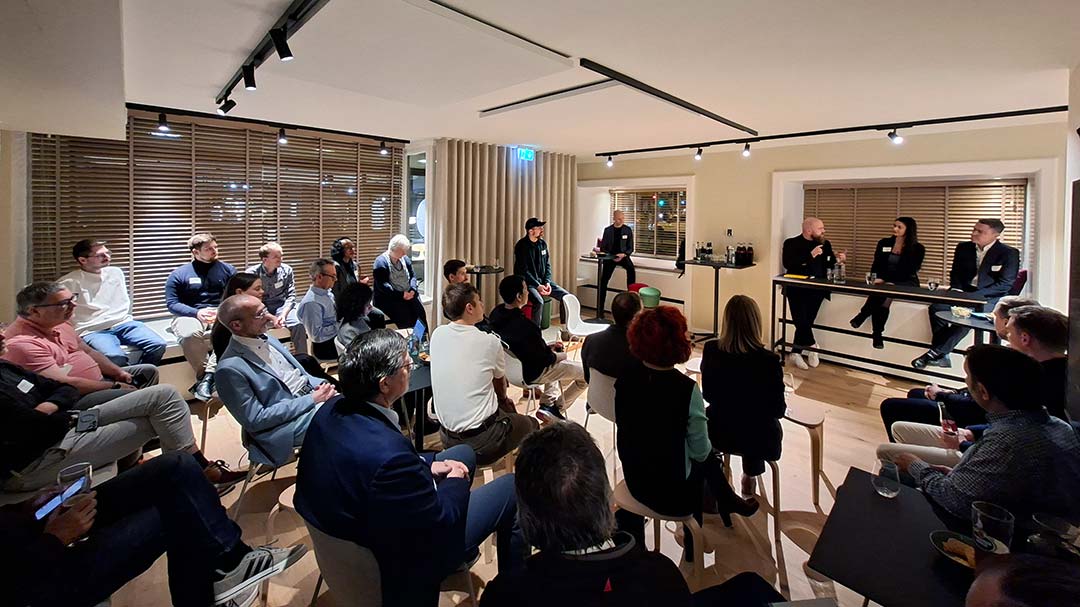Am 13. November 2025 fand das monatliche Security Network Munich (SNM) Meetup bei FGS Global statt und widmete sich dem hochaktuellen Thema “Disinformation, Deepfakes and AI: Hybrid Threats and What Companies Can Do”. Über 40 Cybersecurity-Professionals aus dem Münchner Sicherheitsökosystem kamen zusammen, um sich über eine der drängendsten Herausforderungen unserer Zeit auszutauschen.
Der Abend folgte dem bewährten SNM-Format: Start um 18:00 Uhr mit fokussierten “Food For Thought”, gefolgt von offenen Diskussionen bei Essen und Getränken. Dieser Ansatz hat sich als effektiv erwiesen, um eine Atmosphäre zu schaffen, in der praktische Erkenntnisse Vorrang vor theoretischen Diskussionen haben.
Evening Program
Welcome and Community Introduction
The meetup opened with a warm welcome from Sebastian Doedens of the FGS Global Team. The registration limit had been reached well in advance, reflecting the strong interest in the chosen topics surrounding hybrid threats.
Panel discussion: When Information Becomes a Weapon
Speakers:
- Rebekka Weiss, Head of Regulatory Policy, Microsoft Germany
- Taavi Rõivas, former Prime Minister of Estonia; Chairman, Auve Tech; Senior Advisor, FGS Global
- Johannes Steger, Managing Director and Head of Digital Crisis Management, FGS Global
The three experts examined the topic from different perspectives in the panel – from technological regulation to governmental experiences to practical crisis prevention. Under Chatham House rules, a lively exchange developed. Respecting the overall confidentiality of the event, here are some of the key insights shared:

Key Insights of the Evening
The New Dimension of Psychological Warfare
A particularly striking example illustrated the sophistication of modern disinformation campaigns: “Show people that they are poorer than their neighbors.” This seemingly simple strategy illustrates how misinformation operates – not through technical hacks, but through targeted manipulation of our perception and emotions. The discussion made clear: War today is not solely conducted through tactical means. Hybrid threats systematically exploit our psychological vulnerabilities.
AI as Accelerator and Challenge
The experts emphasized that AI represents the new frontline in the fight against disinformation. Deepfakes are becoming increasingly sophisticated and harder to detect. However, the real problem lies in the fact that we humans have not yet developed sufficient immunity against propaganda and misinformation. A central point of the discussion: Technology is always dual-use. The question is not whether AI can be misused, but how society chooses to manage and mitigate that risk.
Digital First as a Security Strategy
Paradoxically, digital is safer than analog – an insight that surprised many participants. The speakers argued convincingly: Why don’t we think digital first when it comes to security? Digital systems offer better traceability, audit trails, and control options.

The Uncomfortable Truth: Societal Resilience Instead of Technical Solutions
One of the most important insights of the evening: There is no single regulation or technology that will save us from hybrid threats. Instead, we must make our society as a whole more resilient. Awareness must become more accessible and less technical. The experts advocated for a paradigm shift: Away from purely defensive approaches, toward resilience-building at the societal level.
The Most Valuable Conversations: Unwritten Discussions
After the formal presentations, the most profound discussions developed during the networking phase. Participants exchanged insights on concrete challenges in their organizations and discussed practical implementation strategies.
Key Themes and Insights
The Dissolution of Traditional Security Boundaries
The presentations illustrated how traditional security categories are blurring. Hybrid threats don’t fit into established frameworks – they require new, interdisciplinary approaches.
Practical Implementation in Focus
The evening consistently emphasized practical, actionable insights. All speakers shared experiences from real implementations and crisis situations, rather than abstract concepts.
Community Learning as a Success Factor
The format itself reinforced the value of peer-to-peer learning. The combination of expert presentations and open discussion created an environment where knowledge flows in all directions.
Outlook
The success of this meetup underscores the value of regular, community-driven professional events in the cybersecurity field. The next Security Network Munich Meetup will continue the monthly tradition of bringing practitioners together to share knowledge and experiences.
The evening at FGS Global demonstrated how the combination of expert insights and community discussion creates a learning environment that enriches both newcomers and experienced professionals. As cyber threats continue to evolve, particularly through the integration of AI and the expansion of hybrid attack vectors, such forums for knowledge exchange are becoming indispensable.
Disclaimer: This article was created with digital assistance: AI helped with research and formulation, while final editing and content responsibility remains exclusively with the author.

